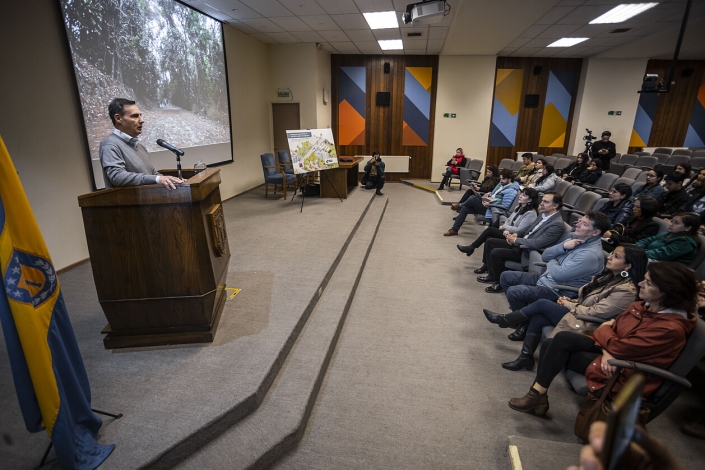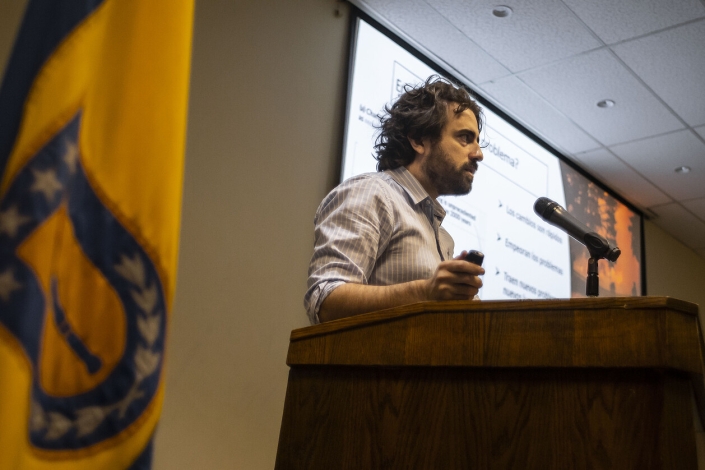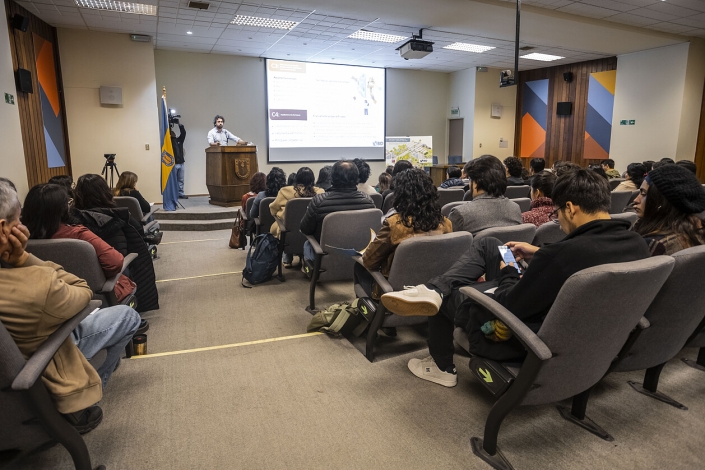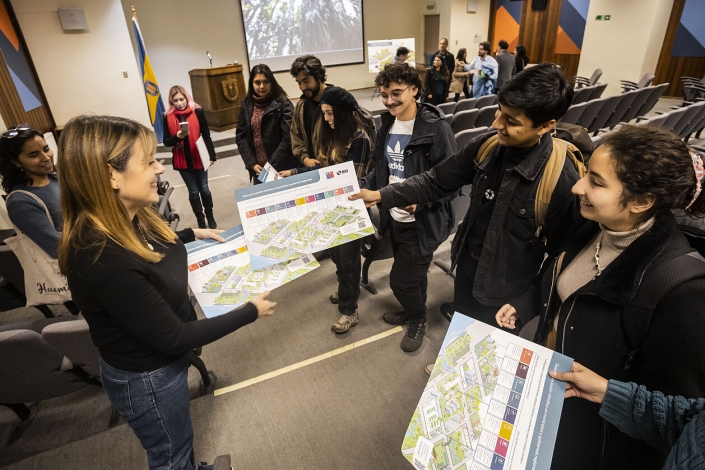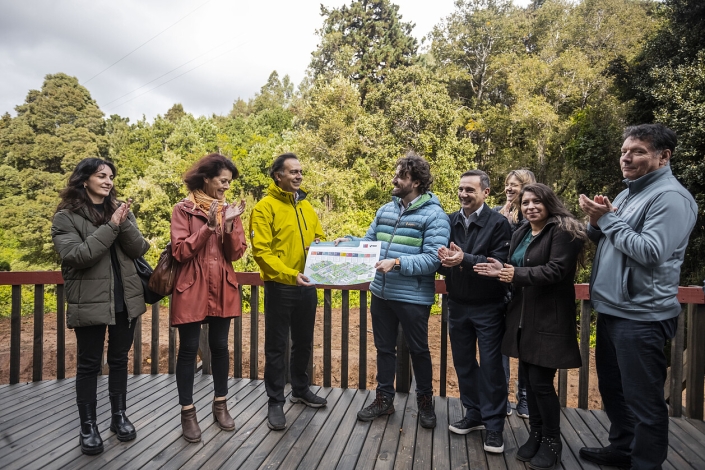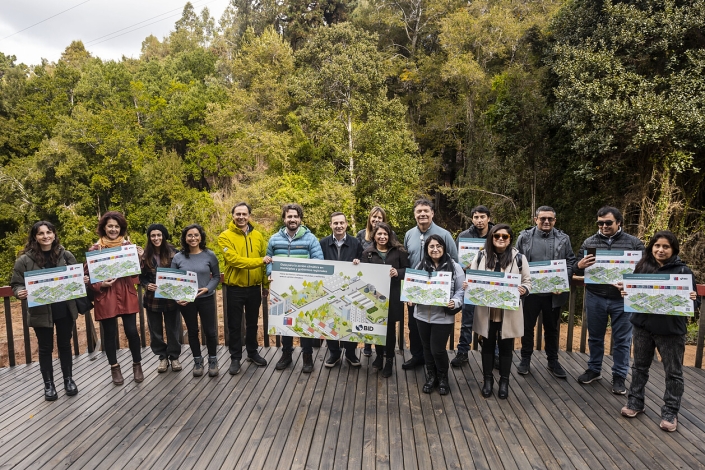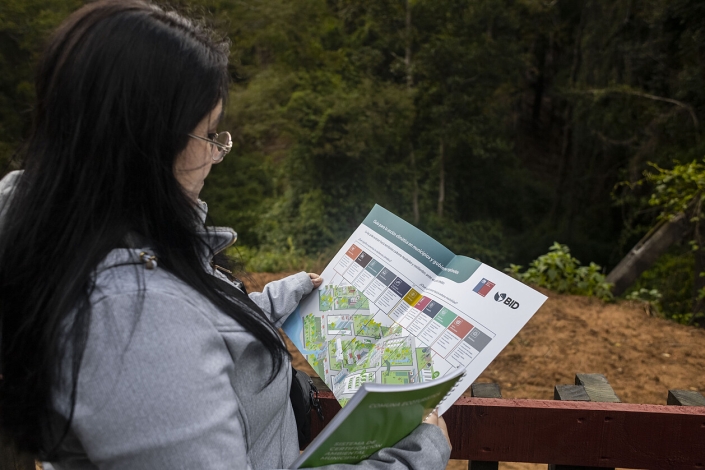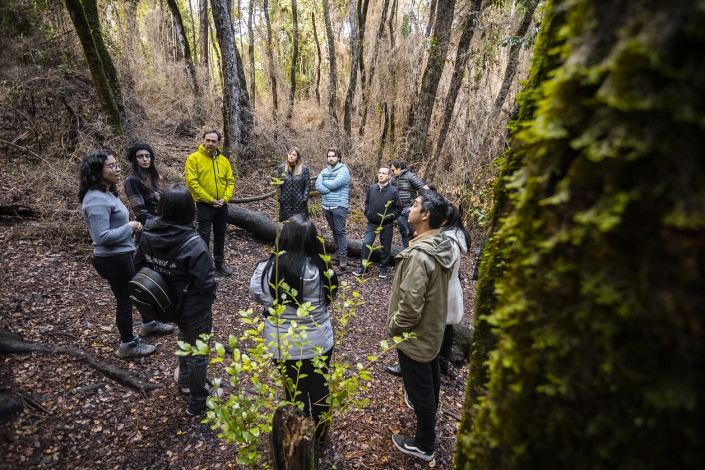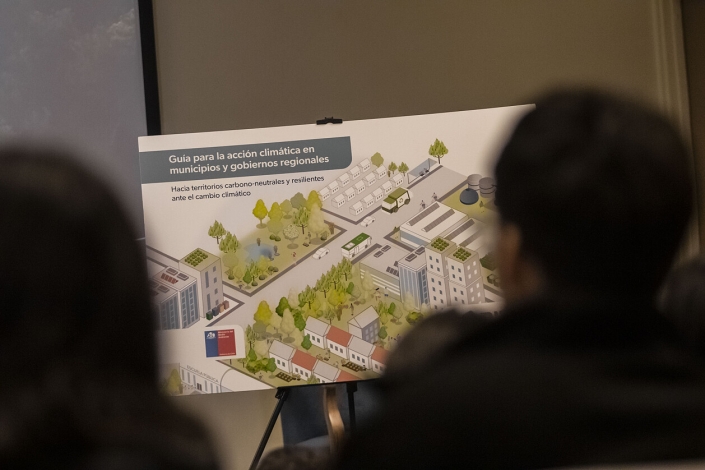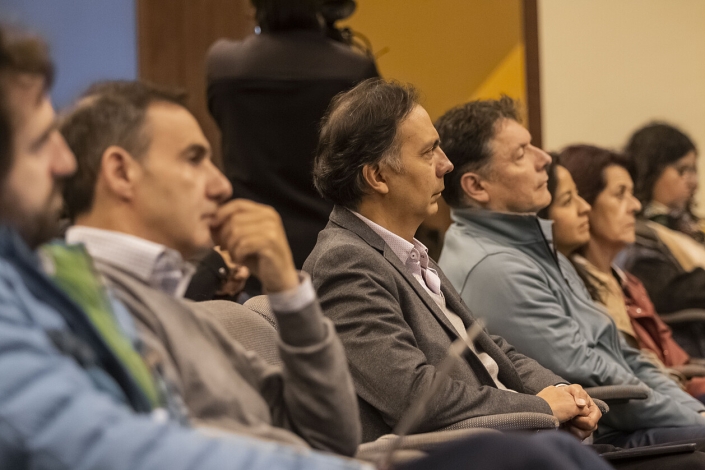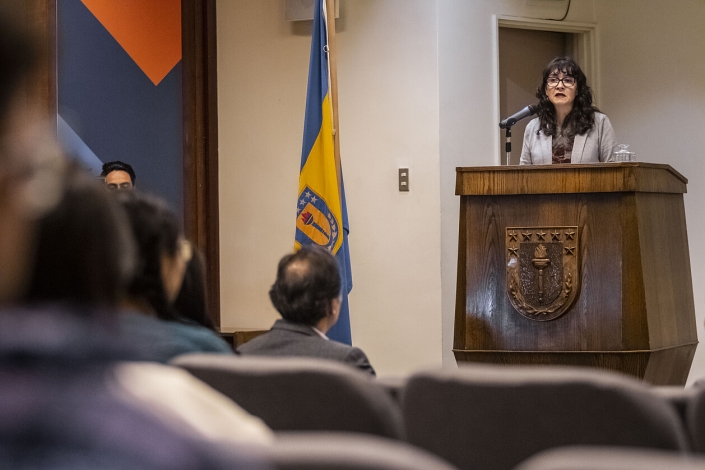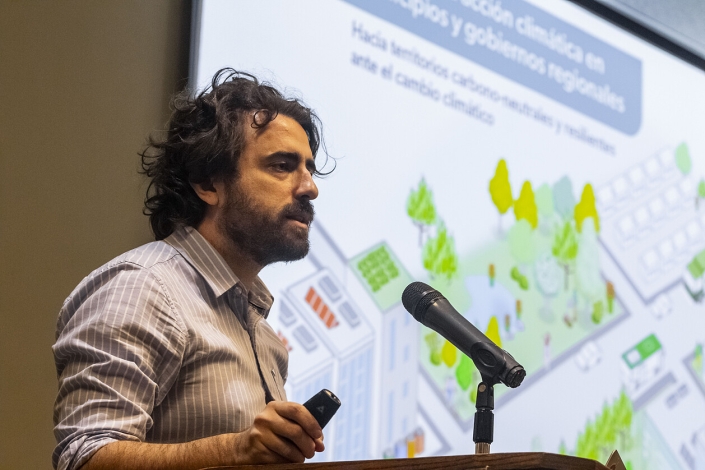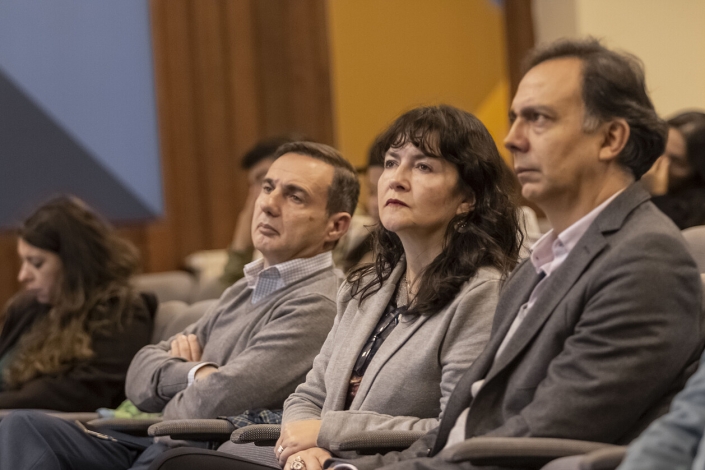University of Concepción and the Inter-American Development Bank (IDB) Launch Climate Action Guide
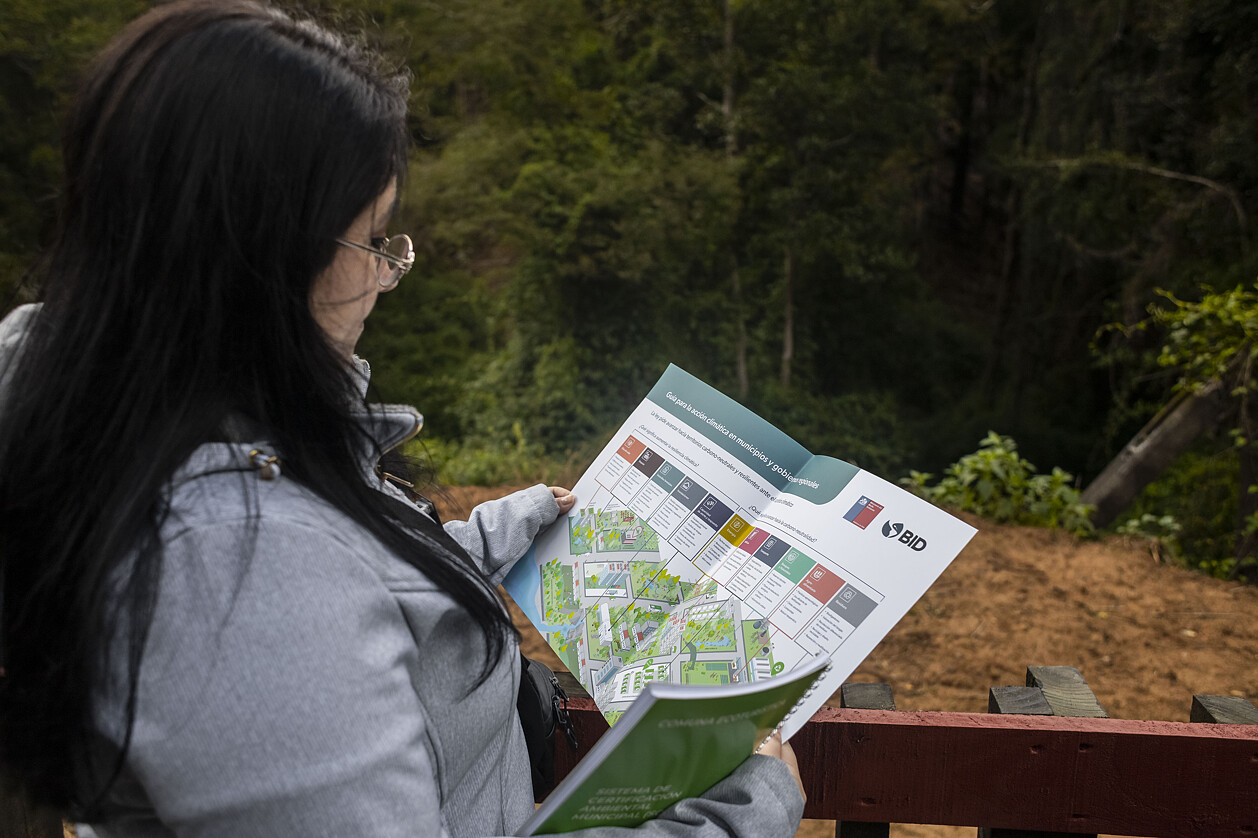
The climate crisis and environmental challenges require concrete measures increasingly urgent to address them. In this context, the University of Concepción and the Inter-American Development Bank (IDB) present the "Guide for Climate Action in Municipalities and Regional Governments: Towards Carbon-Neutral and Resilient Territories," a publication that proposes 22 concrete and achievable measures for local governments to address climate change.
The guide was prepared by the Inter-American Development Bank (IDB) and the Ministry of the Environment. Similarly, the activity organized by the Campus Naturaleza project, UdeC + Sustainable, and the Communications Department is part of the Earth Day commemorations.
The document's objective is to empower regional and local leaders to act decisively in the fight against climate change. It also identifies the transformations for a carbon-neutral and resilient future, along with the climate actions to implement this change, overcoming barriers, and inspiring their communities. The document was developed from workshops with key stakeholders at the national, regional, and local levels, as well as literature analysis and review of experiences in the region.
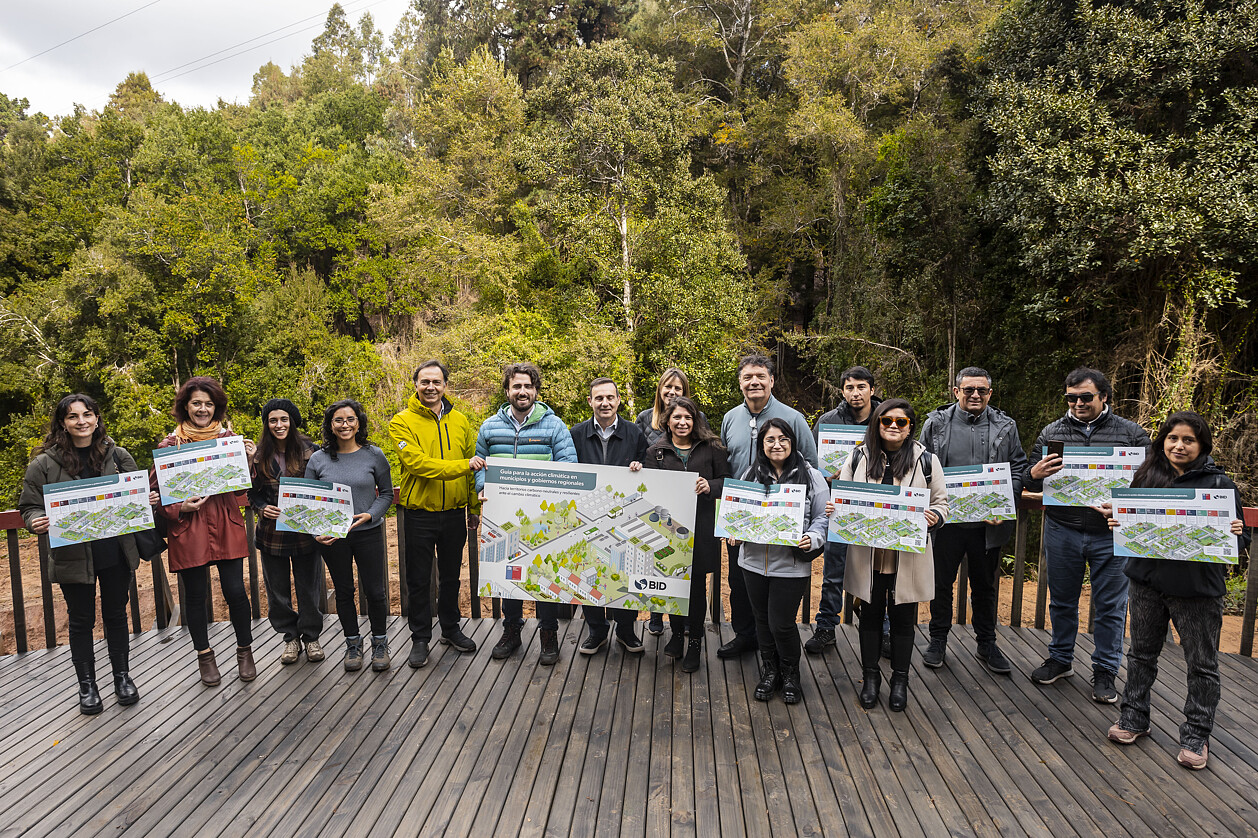
The Vice-Rector for Institutional Relations and Community Engagement, Ximena Gauché Marchetti, comments that “it was a great coincidence to do this activity precisely on International Earth Day. We know that this is a topic that concerns and worries the community, not only in this region but across the country. Thus, the initiative connects with the concerns and commitments that the University of Concepción has been assuming, not only in the area of community engagement but also, and in a transversal way, for the environment and for biodiversity conservation, through a very concrete action, such as the Campus Naturaleza project.”
"This initiative was launched almost a year ago and aims to become a legacy for future generations, which is also important to highlight because this is not just a matter for those of us living today, but for those to come. Therefore, from that perspective, having the country equipped with a guide like the one presented today in this joint effort between the IDB and the Ministry of the Environment is a particularly interesting contribution to the regions, aligning with our university's strong regional relevance in Ñuble, Biobío, and Concepción."
Campus Naturaleza
Dr. Cristian Echeverría Leal, director of the Campus Naturaleza project at the University of Concepción, explains that the guide provides guidance on the difference climate actions that can be implemented in order to have more resilient cities and urban systems. “In particular, Campus Naturaleza is already materializing these actions through its various action lines. One of them is the ecological restoration of native forest, which is also part of advancing towards carbon neutrality. Also recovering areas invaded by exotic species, restoring and converting them as native forests and protecting terrestrial and aquatic ecosystems through in-situ conservation actions.”
“For us, it is a great opportunity that the Inter-American Development Bank has considered Campus Naturaleza to showcase the guide, as they recognized in us and in our action lines, how aligned we are with the goals pursued by the IDB in relation to supporting climate actions.”
He also highlights the alignment between words and actions, stating, "Launching the climate action guide in a place where such actions are already in motion, including firebreak zones, restoration, and ecosystem conservation—particularly in areas crucial for human well-being—is very coherent."
Pablo Angelelli, head of Operations at the IDB, comments that “the guide, formulated with the support of the Ministry of the Environment, aims to be a compass tool for regional and municipal governments, providing them with concrete and relevant measures to act swiftly and achieve a significant high impact in climate mitigation and adaptation.”
In the same way, Hipólito Talbot Wright, one of the authors of the document and who works in the Climate Change Division of the IDB, states that “climate action requires that local governments and municipalities also do their part. Many of the competencies to achieve climate action are there, and the Framework Law on Climate Change requires them to have climate action plans at both the regional and local levels. So, the idea of this book is not to tell them what to do, but it is a kind of list of actions that they could implement to achieve their climate goals in their regions and communities. We are trying to create information and knowledge, in order to make that knowledge available, but also specifically for municipal and regional government issues.”
He adds, "This location exemplifies what the guide itself recommends. It's not just a conservation project; it's integrated within the urban fabric, providing substantial environmental and cultural benefits to the city. It serves as an excellent model for fostering climate mitigation and adaptation efforts in Chile."
The activity concluded with a visit to the Campus Naturaleza project with members from different municipalities, whom were symbolically given the guide.

